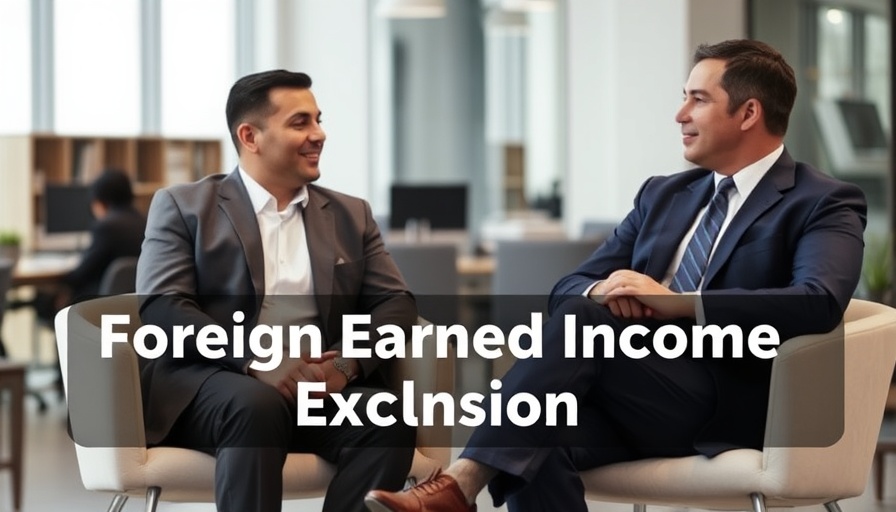
Understanding the Foreign Earned Income Exclusion
For many people moving overseas, understanding their tax obligations is one of the most pressing issues. That's where the Foreign Earned Income Exclusion (FEIE) comes in, offering significant benefits for expatriates. It’s a mechanism that allows U.S. citizens living abroad to potentially reduce their taxable income, making life overseas financially more manageable.
In 'What is the Foreign Earned Income Exclusion (FEIE), and how does it work?', the discussion dives into essential tax advantages for expats, exploring key insights that sparked deeper analysis on our end.
What Is the Foreign Earned Income Exclusion?
The Foreign Earned Income Exclusion permits qualifying expatriates to exclude a substantial portion of their earned income from U.S. federal income tax. Each individual can exclude up to a designated limit—over $100,000—which keeps most expatriate salaries free from taxation while living outside the United States.
Key Requirements for Exemptions
However, not just anyone who travels abroad can take advantage of this benefit. There are clear qualifications—namely the physical presence test and the bona fide residence test. For the physical presence test, an individual must spend at least 330 full days in a foreign location during a rolling 12-month period. This does not mean occasional trips; it requires significant and sustained residence away from the U.S. In contrast, the bona fide residence test entails living in the foreign country for an entire calendar year with the intent of establishing a permanent home.
Maximizing Your Exclusion
If you qualify, the potential tax savings could be remarkable. For example, if both partners in a marriage meet the criteria, they can double their exclusion limit, allowing a significant amount of their combined income to remain untaxed. This is particularly appealing for couples looking to enjoy life abroad without the burden of excess tax liabilities.
The Paperwork: Forms and Extensions
To claim the FEIE, you'll need to file specific tax forms when submitting your annual income tax return (Form 1040) and also include Form 2555. It’s essential to follow procedures carefully—delays and complications could arise if one doesn’t handle the necessary paperwork correctly. Sometimes, individuals might need special extensions, and not filing on time could lead to unanticipated complications in tax obligations that could adapt across two years!
Professional Guidance: A Smart Move
Given the complexities of navigating U.S. tax law while living abroad, it's wise to seek professional help. Experts can clarify your situation, advise on tax strategies, and ensure all forms are filed correctly—preventing mistakes that could prove costly later. This guidance can streamline the entire process and help you truly benefit from the FEIE.
Future Considerations: Tax Laws and Expats
As the global economy continues to evolve, expatriates should keep an eye on potential changes to tax legislation that might affect the Foreign Earned Income Exclusion. Policy-making is unpredictable, and regulations could adjust based on political climates and economic data, possibly affecting future assessments for expatriates.
The Expat Community and Resources
The expat community itself can also be an invaluable resource. Groups and forums where expatriates congregate often share real-world experiences and insights regarding managing taxes, specifically relating to the FEIE. Engaging in such networks can provide practical advice and even emotional support during the transition of living abroad.
Conclusion
As globalization facilitates movement across borders, understanding tax implications is vital. The Foreign Earned Income Exclusion serves as a powerful tool for expatriates striving for financial efficiency while working in different countries. By knowing the ins and outs of the exclusion, utilizing professional services, and staying informed of tax law changes, expatriates can maximize their income and enjoy their experience abroad.
 Add Row
Add Row  Add
Add 




 Add Row
Add Row  Add
Add 

Write A Comment